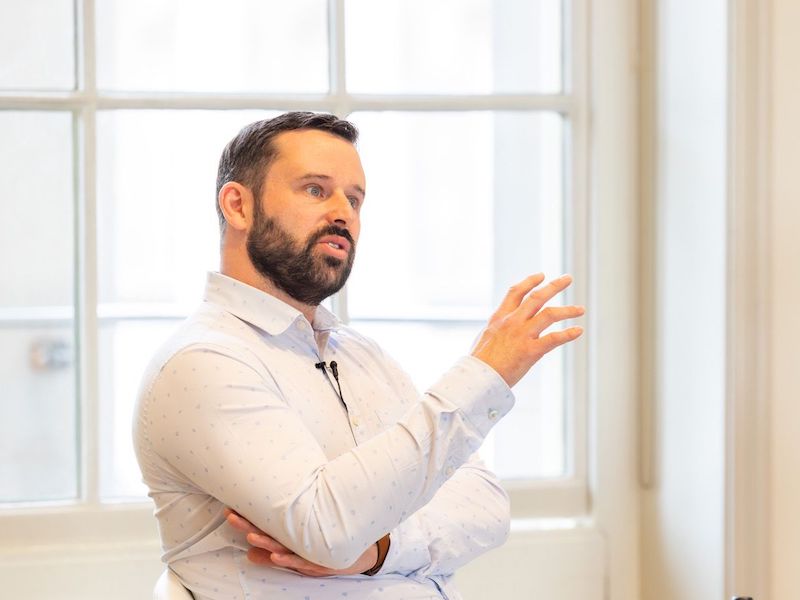Maja Pawinska Sims 23 Sep 2022 // 4:43PM GMT

LONDON — Speakers at the One Question event in London last week debated the role, rights and responsibilities of communicators in educating consumers about big societal issues.
The conversation, in partnership with the Financial Times and PR agency MikeWorldWide, looked at the question ‘Is education the answer?’ through a number of different lenses, including the education system, the media, branding, criminal justice and regulation.
On a panel discussion focused on the communications perspective, MikeWorldWide’s London president and MD Tom Buttle and Paul Randle, co-founder of the Sustainable Marketing Compass, a framework for embedding sustainability within marketing strategy, talked to Management Today editor Kate Magee about the extent to which PR could support brands in educating their customers on areas such as societal change, sustainability and the environment.
Buttle (pictured) said there was now no question that brands should be involved in societal issues: “Consumers are really corpsumers now: they care about brands and shiny stuff, but they also care about the essence of the corporation behind it. What brands are selling is a fundamental part of capitalist society, so the idea that companies can be abstracted from society is bizarre and dated. So there is recognition that brands need to participate in society, the art is in which parts, and why? Are you doing so with integrity?
“It’s about a drumbeat: how we participate in a conversation, rather than a moment in time. Are you looking at this as a moment to put a brand into the spotlight, or do you have a sustained commitment? There’s no cookie-cutter approach to the path brands need to take. But when you look at insights, authenticity and action, a lot of brands are good at one or two, but not all three. Brands need to ask: what are our values and principles, who works for us, who do we work for, and what can we do 12 months a year, year after year?”
However, Randle said that even with good intentions, brands and their communications and marketing teams were not necessarily well-educated enough on big issues to effect change, especially when it comes to the field of sustainability: “We’re meant to be a creative industry, but brands are shockingly ill-equipped to genuinely manifest anything around sustainability, and the big issues aren’t properly understood by the teams delivering that work.”
He said as a result there was still cynicism about brands’ involvement in conversations or action around big issues: “When the comms industry puts out messages, no matter what their intent, people distrust them: 99% of greenwashing is accidental. The industry needs to go through a credibility shift. We’re using the wrong tools – the complete toolkit of the comms industry is based around commercial growth, but thinking about a societal and environment point of view needs the whole industry to pivot.
“Genuinely purpose-led brands don’t just exist to make money. But there’ a complexity in how you articulate those stories. There is an educational role to comms and it’s about bringing our creativity to educate ourselves and consumers, so we can have a better dialogue.”
Buttle added that another problem with brand communicators’ approach to societal change was the ongoing challenge of diversity in the industry: “The issue around the role of comms in shaping society is the make-up of the industry. It’s hugely lacking in diversity, and when you have the same people sitting round the table you can’t pre-empt what’s happening in society, because you don’t have that view.”
But he also made the point that “even if you have the smartest comms people in the world in the boardroom,” PR professionals can do little to effect change on big issues in isolation and without commitment from the business: “Reputation is powerful and important – it’s not just about a shiny comms plan where nothing actually changes. Communications is how you articulate what the business is doing, and frame and amplify that, and we can advise the business – but business also needs to take action.”


































.jpg)

















